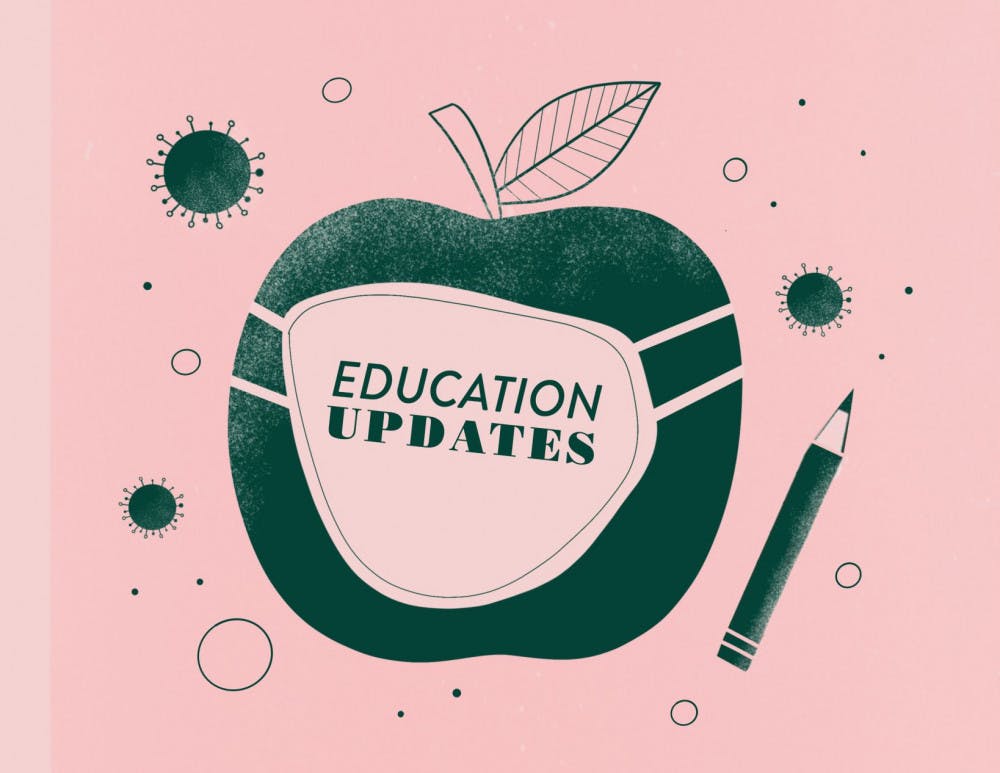
Emotions were high at a Tuesday night school board meeting where teachers pleaded with the school board to address overcrowded classrooms and learning models.
The board debated passing school improvement plans and received an update on HyFlex, Alachua County Public Schools’ simultaneous in-person and online learning model. Teachers will now receive chances for further training and networking about digital and hybrid learning. The school district also received more than $1 million from the county.
School board member Tina Certain said the school board asked the county for more than $13 million in aid because of unforeseen costs of the COVID-19 pandemic. After a Tuesday afternoon Alachua County Commission meeting, the school district will receive more than $1 million through the Coronavirus Aid, Relief and Economic Security Act.
The board focused a portion of the meeting on school improvement plans, which are individual outlines submitted by each school that the district monitors that address issues, such as low test scores, equity and school safety. The plans are approved by the school board, which later sends them to the state by Oct. 15.
Teachers made their frustrations heard during the public comment period.
Michele O’Neil, a teacher at Rawlings Elementary School, discussed her concerns with large class sizes. She urged board members to look for practical and equitable solutions.
“Our students are brilliant, and they have a ton of potential, but they need to be set up for success,” she said. “Sitting in oversized classes is not doing that, and it’s a disservice to our students.”
Chelsea Bowlin, a fellow elementary school teacher, echoed concerns about class sizes. Bowlin, who teaches at Lake Forest, said class sizes have always been an issue, even before COVID-19 impacted classrooms.
“Even an amazing teacher can only do so much with a large class with many high-need students,” she said.
Kelly Cacciabeve, another elementary school teacher at Lake Forest, said some schools are still struggling with technology. She said teachers feel like their concerns are being ignored.
“It’s very overwhelming, and we need a solution right now,” she said.
Certain expressed concerns about approving school improvement plans, which, she said, didn’t consider the state of education during the COVID-19 pandemic. Certain said she was worried that the plans overlooked the new reality and were too similar to those from previous school years.
Jeffrey Charbonnet, research, assessment and school improvement director, told the board that the school plans can evolve as needed.
Another update, focused on the controversial HyFlex model, came from Jennifer Wise, the ACPS K-12 curriculum executive director. A variety of stakeholders, including parents and teachers, are frustrated that teachers are forced to juggle in-person and online students simultaneously.
“I’m back,” Wise joked as she stepped up to the lectern for the first time since the last HyFlex update at a Sept. 1 school board meeting.
HyFlex became more prevalent to give students access to more classes, keep in-person numbers down and allow for continuity if a student got sick or was exposed to the virus, she said.
During the review of HyFlex, school board member Gunnar Paulson noted that HyFlex classrooms are less common in elementary schools. He said most high schools have more than 80% HyFlex courses.
The district began offering additional professional development in September. It’s also currently working to implement professional learning communities to allow teachers to share ideas and vent about their frustrations, something teachers have asked for.
Wise said she isn’t promoting or condemning any learning option.
“The only thing we can do is endeavor to do is to make it better, and that’s what we’re working on right now,” she said.





